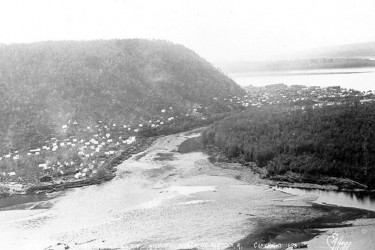For David Nolan, watching the nation commemorate the 400 year anniversary of the first arrival of slaves from his home here in the United States' oldest city is frustrating.
Nolan, a local historian, author and civil rights activist, insists it only advances a false, racist belief that Englishmen founded America and created the system of slavery that defined this country.
"It makes me want to scream," says Nolan. "You’re robbing black history."
The truth is Spaniards settled in St. Augustine, Florida, with enslaved blacks more than half a century before any arrived in Jamestown, Virginia, in 1619 aboard a ship captured by English pirates.
Historical records document the presence of black slaves dating back to their arrival in what was known as Spanish Florida in 1565. They built military forts, hunted food, cut wood and later even created a settlement for freed blacks, Fort Mose.
But the influence and significance of the Spanish on the country's founding was ignored and lost as English laws, language and culture established a stronghold in the new nation.
Historians and other interested parties challenged writers in the 19th and 20th centuries and tried to spread the story of Spanish settlers and slaves in St. Augustine through exhibits, lectures and books. Still, the 1619 narrative carried on in history books and popular culture.
Kathleen Deagan, a professor of archaeology at the University of Florida, said people have spent their careers trying to correct the erroneous belief.
"It just doesn't resonate," Deagan said. “I don’t know whether it’s just ingrained English-Anglo attitudes, that anybody who isn’t like us can’t really be American.”
Seeds of slavery
European settlement of what would become the United States began Sept. 8, 1565, when Spanish Admiral Pedro Menendez de Avilés founded St. Augustine on the northeast Florida coast. He arrived with ships filled with soldiers, wives, children and Africans, who were mostly slaves.
Records show Spain’s King Philip II contracted with the admiral to take 500 slaves to establish sugar plantations in the new colony. It's unknown if the Africans were previously enslaved in Spain, said local historian Susan Parker, or exactly how many made it to the settlement. Records show there were 56 slaves in St. Augustine by 1602.












_-_The_First_Negro_Slaves_Br.png)







